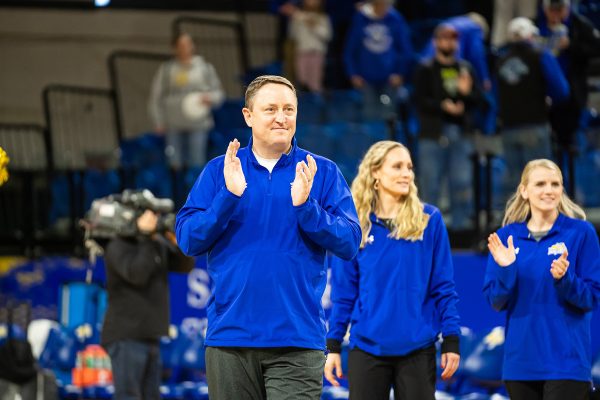Group creates voice for graduate students
November 29, 2016
The Graduate Student Coalition formed this year with the overall goal of uniting graduate students.
Graduate students were informed last spring there would be a change in the stipends they receive and tuition would be free. This change was not communicated with students until it was finalized. Many of the graduate students did not support the change.
To prevent miscommunication in the future, several graduate students created an organization dedicated to hearing the needs of the graduate student population, which is about 1,400 students.
“We need an organization that represents graduate students because our voice tends to get muted because we play dual roles a lot of the time,” said Jess Peterson, communication studies graduate student. “As [teaching assistants], we’re looked at as faculty but also as researchers and students and we get lost in the mix a lot of the time.”
The previous organization for graduate students “fell by the wayside,” Peterson said. The lack of communication between the graduate students and the Graduate School led to the official creation of the coalition this fall.
Peterson, communication chair for the coalition, said a concern of the group’s is creating a structure that will last from year to year.
The coalition is not connected to the Graduate School.
“Being a student organization run by students separate from the Graduate School kind of gives people an area to voice their grievances a little more confidently and not feel silenced,” Peterson said.
This semester, the coalition advocated for 24-hour library access for graduate students, which was passed by Students’ Association for all students. The group has also been hearing the concerns of their fellow graduate students.
“Our main goal is to … communicate as much as we can about what is happening at the university,” said Karla Rodriquez Hernandez, vice chair and student liaison.
Kinchel Doerner, the Graduate School dean, welcomes the coalition to campus and acknowledges the need for an organization like it.
“Any kind of graduate student organization where graduate students can come together across cross-disciplinary boundaries we welcome, we want it to happen,” Doerner said. “I think we need more of it on this campus.”
Cross-disciplinary interaction is a hope for both Doerner and Peterson.
“Unless they’re in your discipline, you don’t get an opportunity to meet other people from the graduate school so we’re hoping that this is almost like an outreach point,” Peterson said.
Ultimately, the coalition members want to help their fellow graduate students.
“If you come talk to us, we will try to help you the best we can,” Peterson said. “If we don’t know the answer, we will tell everyone the situation and hopefully someone knows how to handle it.”
























